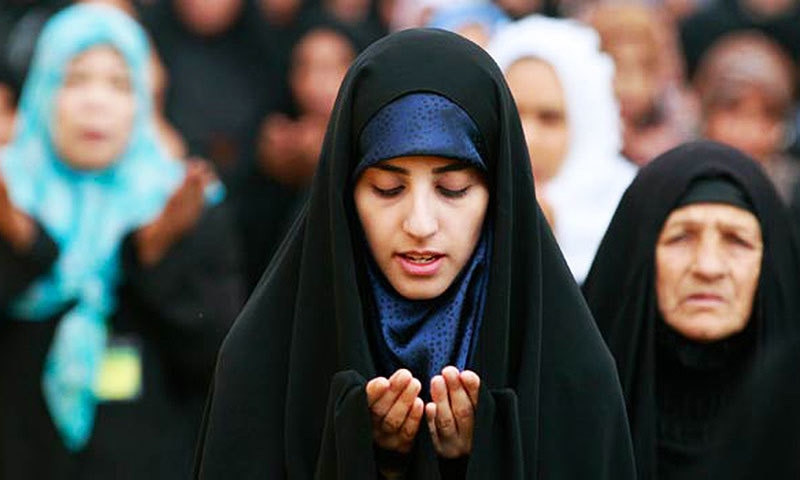The ends of the floral scarf around her shoulders fluttered behind her. Despite the wind, her black hijab was securely wrapped around her head, with just the slightest bit of hair peeking out. Her mustard yellow sweater contrasted with the blue skies above her and matched the sandy beach under her bare feet.
Attia Nasar is the director of a four-part documentary titled American Muslims, produced by the US State Department’s Bureau of International Information Programs last year.
The documentary contains interviews from Muslims of different backgrounds, including US Congressman Keith Ellison and Ibtihaj Muhammad, of the US fencing team.
Keith Ellison is the first Muslim in US Congress. He is a Democrat representing the 5th district in Minnesota.
It was created to be a positive representation of American Muslims, to specifically be viewed by Muslims overseas.
“Part of my job was doing outreach with different communities across South and Central Asia,” Attia explained.
Also read: 'We are good Muslims, but Americans too'
“One of the biggest communities there, is the Muslim population, so [the question was] how do we do outreach to the Muslims?”
According to Attia, Muslims from South and Central Asia have a lot of misconceptions about American Muslims.
When she would visit South and Central Asia, people would assume that she only wore the hijab while she visited, not believing she wore it full-time.
“They’re like, ‘wait, you are a Muslim and you work in the government?’ They were really surprised [that Muslims had jobs in the American government],” Attia recalled.
 |
| Attia Nasar. |
People also have the misconception that Muslims in America aren’t “real Muslims.”
“I was in Afghanistan for a radio interview and the guys didn’t believe I was Muslim enough,” commented Attia.
“They asked me to recite the Quran… I did and they were shocked,” Attia says with a satisfied smile and a loud laugh.
There is an irony in Attia having to defend and reassure her faith to fellow Muslims overseas; she grew up also defending her faith from people who didn’t understand Islam.
When most people think of New York, they think of the bustling Big Apple. That wasn’t the New York that Attia was born and raised in. It was actually 5 hours from the city.
“I grew up in a small town in upstate New York, called New Hartford.” Attia says, “I was the diversity,” she laughs.
“I think where I’m from, most people… they just don’t know anything about Islam,” Attia continued, her purple-painted fingers grazing on her scarf, “I started wearing the hijab when I was 16 and that did change the way that people interacted with me.”
Also read: New York public schools add two Muslim holidays to calendar
However, Attia states that “if someone says something to me on the street I always stop and start talking to them. I try to flip it right back on them.”
“Although, sometimes I can get a little bit defensive because it’s offensive!” Attia exclaims.
Her documentary project has allowed her to defend America to Muslims from other countries.
According to Attia, many of the news headlines in other countries portray America as “anti-Islam or anti any other religion other than Christianity.”
The documentary “is a way for us to showcase and highlight the diversity of America […] being [in America] does not mean you have to sacrifice yourself or your religion.” Attia asserted.
Attia’s background played a helpful role in the documentary.
Caitlin Rossmann, the executive producer of American Muslims, observed that Attia “possessed the cultural understanding necessary for us to create an authentic and compelling narrative.”
Attia initiated the documentary project when she noticed that a popular State Department-produced book about American Muslims was outdated.
“The video was made to compliment the book, but I focused mostly on the video part of it because I mean, we’re in the 21st century, why not do a video?” Attia laughs.
The four-part documentary is available on YouTube. It is separated into chapters.
Attia and her team found people to interview in DC, and also traveled to New York City, Chicago, and Los Angeles.
“That’s where we could catch the broadest number of Muslims, in those cities. Like people who were doing really, really big things within the Muslim community.”
Attia herself learned a lot from the documentary-making journey.
“There’s actually a huge Hispanic Latino Muslim population, it’s getting bigger in Latin and South America,” Attia says, drawing out ‘huge’ for emphasis.
She met an Imam-in-training, “From what I know, [he will be] the first Latino American Muslim Imam,” she laughs, “but I think it’s so cool and they’re doing outreach in Hispanic.”
Caitlin mentioned that “we found a Hispanic Muslim woman in Los Angeles who helped us identify a number of potential people and places to film.”
“It was clear she connected with Attia on the phone and via email. Attia just knew how to talk with her in a way that resonated with her and assuaged her concerns,” Caitlin praised.
Also read: A Punjabi in New York: Juggling multiple identities
Along with displaying different ethnicities, the documentary contains interviews with Muslims of different ages and occupations as well.
Aizzah Fatima is an actress who was interviewed in the documentary. “It was a great reminder of why I do what I do. The experience was great!” she said.
“Attia is a rock star!” added Aizzah, “There is nothing this lady can’t do. I was thrilled when Attia approached me with the documentary idea.”
As for plans and ideas for more big projects such as the documentary, Attia is undecided.
“But I definitely think I’m gonna get out of government and go into the private sector,” Attia says. “Maybe leave and then come back if I want to later on in life. Try something a little bit different.”
She slips on her sandals, adjusts her floral scarf and takes one last look at the lake behind us as we leave.












































